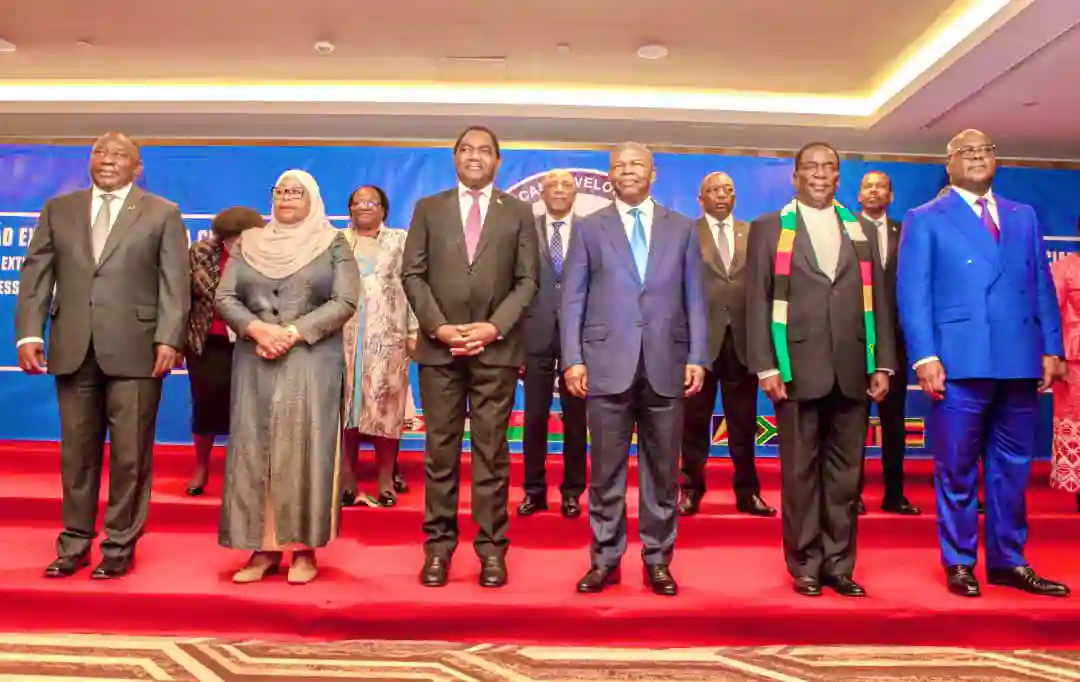Zimbabweans expressed their frustrations towards Zambian President Hakainde Hichilema after he provided an update on the outcomes of the SADC Extraordinary Summit of Heads of State and Government.
Hichilema highlighted that the Summit expressed concern at the deterioration of the security and humanitarian situation in the Eastern DRC and the reported resumption of attacks and occupation of territory by the M23, in clear violation of the Cease Fire. The Summit provided strategic guidance on the deployment of the SADC Mission in the DRC (SAMIDRC) to restore peace and security in the country. The Summit commended Member States that have committed additional pledges towards deploying the SADC Mission in the DRC (SAMIDRC).
He also highlighted that the Summit reiterated the need for SADC to spearhead efforts towards mobilisation of resources for facilitating peace and security in the SADC Region. These efforts include reviving discussions to establish and operationalise the SADC Peace Fund and engaging International Cooperating Partners.
However, many Zimbabweans were disappointed that the summit did not address the political deadlock caused by the disputed August 23, 2023 elections. Academic Ibbo Mandaza questioned why Zimbabwe was not discussed after the storm around the SEOM (SADC Electoral Observation Mission). He said:
And on Zimbabwe? Is this evasion after all of that storm around SEOM?
After the SEOM head to the Zimbabwean elections, Dr. Nevers Mumba, highlighted irregularities in the elections, he faced criticism from various groups and individuals in Zimbabwe. Some hoped that Hakainde Hichilema, as the chair of the SADC Organ on Politics, Defence, and Security Affairs, would address the issue and possibly influence a rerun or nullification of the elections. The opposition Citizens Coalition for Change (CCC) even called for fresh polls.
However, the Summit’s communique mentioned that the Summit received an update on the elections in Zimbabwe but did not discuss the matter further. This means that political processes in Zimbabwe, including the upcoming by-elections, can proceed as planned without SADC’s involvement.
Some Zimbabweans criticised SADC, viewing it as a boys’ club that suppresses the continent and its people. They accused SADC of being a useless organisation without principles, values, and direction, as it has ignored the Zimbabwean issue for too long. Others expressed concern that SADC’s solidarity with the Zimbabwean government could lead to more conflicts and violence in the country.
Some Zimbabweans appealed to Hichilema and SADC to intervene and help address the “dictatorship and human rights abuses” in their country. They expressed disappointment and a sense of betrayal, questioning whether Hichilema would follow the same path as other leaders who have disappointed Zimbabweans in the past.

